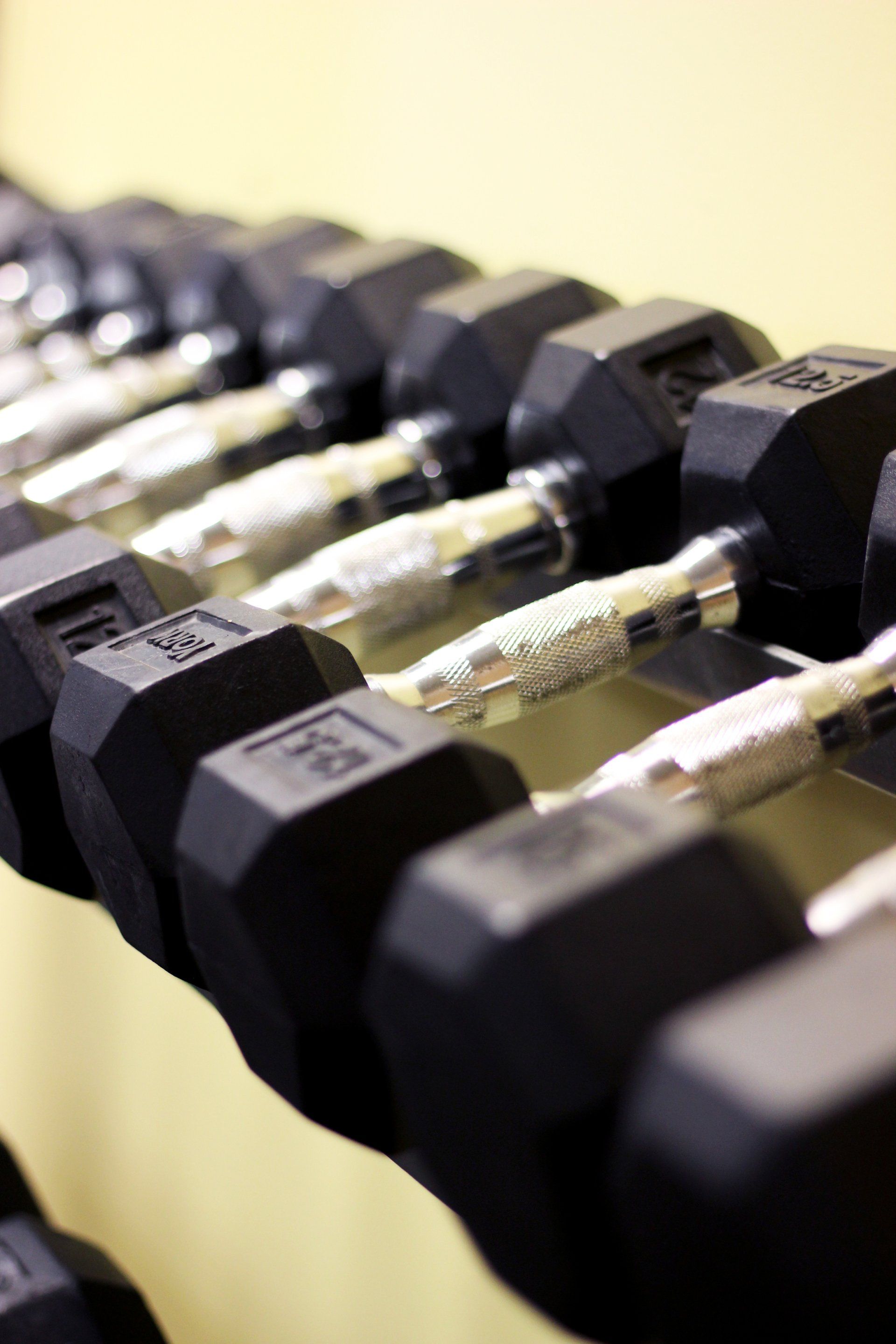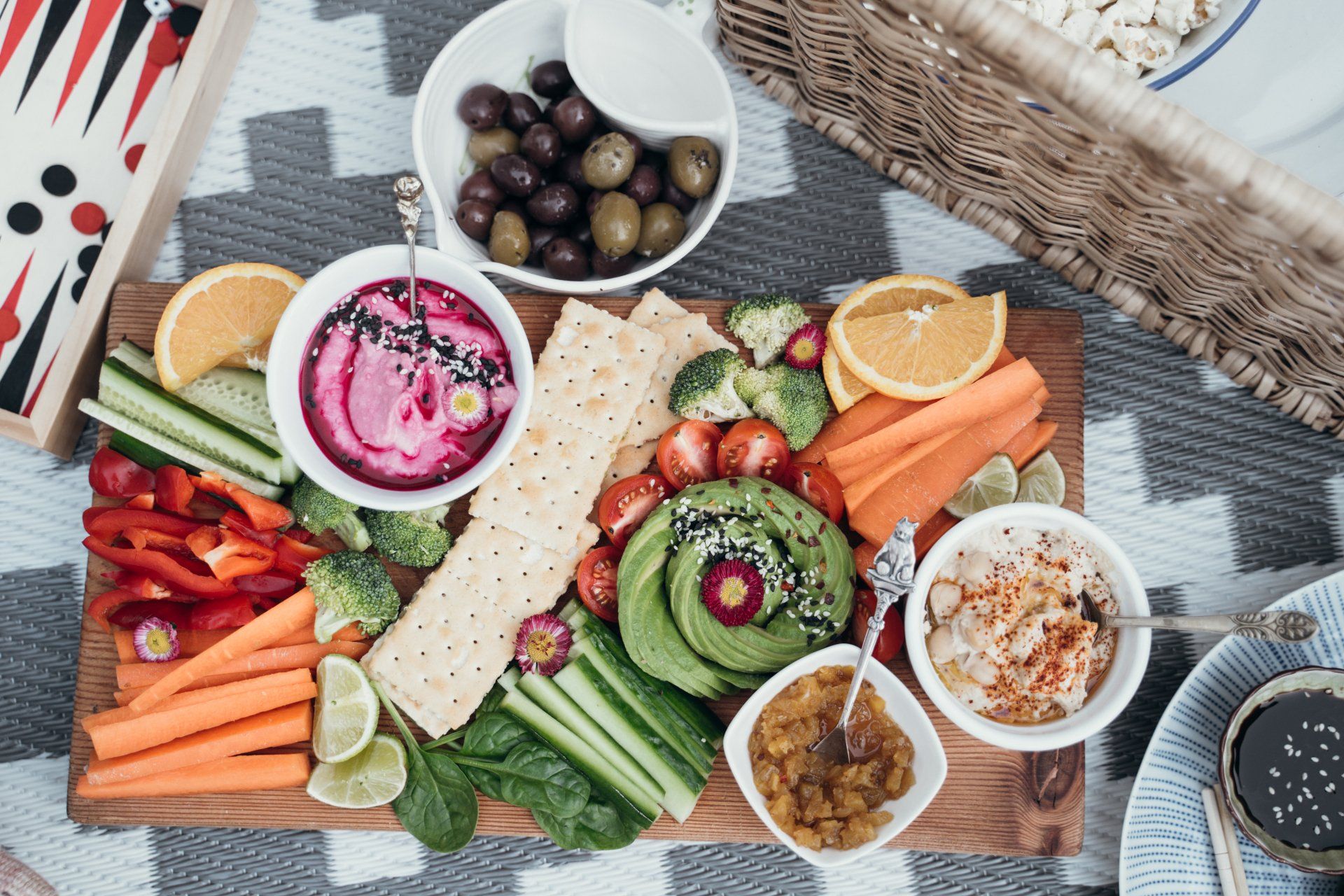Creating a Personalized Nutrition Plan: Calculating Caloric and Protein Needs for Optimal Results
We understand that achieving your fitness goals requires a combination of exercise and a well-balanced diet. In this article, we will guide you through the process of calculating your caloric and protein needs to help you design a nutrition plan tailored to your specific goals.

Importance of Personalized Nutrition Plans
Before we dive into the calculations, it's crucial to emphasize the significance of personalized nutrition plans. Everyone's body is unique, and what works for one person may not work for another. A personalized approach allows you to optimize your nutrient intake, improve energy levels, enhance recovery, and achieve your desired fitness outcomes.
Calculating Caloric Needs
Determining your caloric needs is the first step towards creating a personalized nutrition plan. The number of calories you require depends on factors such as age, gender, weight, height, activity level, and goals. An accurate calculation is vital to ensure you consume the right amount of energy for your body.
To estimate your total daily energy expenditure (TDEE), you can use the Harris-Benedict equation or an online TDEE calculator. This equation takes into account your Basal Metabolic Rate (BMR) and activity level. The BMR is the number of calories your body needs to maintain basic bodily functions at rest.
Once you have determined your TDEE, you can adjust your caloric intake based on your goals. If you aim to lose weight, create a moderate calorie deficit of around 500-700 calories per day. For weight maintenance or muscle gain, aim for a slight surplus or maintenance level of calories.
Calculating Protein Needs
Protein is a crucial macronutrient for muscle growth, repair, and overall health. Determining your protein needs is essential to support your fitness goals. The recommended daily protein intake varies depending on factors such as activity level and body composition goals.
For individuals engaging in moderate exercise or recreational activities, a general guideline is to consume around 0.8-1 gram of protein per kilogram of body weight. However, if you are regularly engaging in intense exercise or resistance training, you may benefit from a higher protein intake.
To calculate your protein needs, multiply your body weight in kilograms by the desired protein intake per kilogram. For example, if you weigh 70 kilograms and aim for 1.2 grams of protein per kilogram, your protein requirement would be 84 grams per day (70 kg x 1.2 g/kg = 84 g/day).
Designing Your Personalized Nutrition Plan
Now that we have calculated our caloric and protein needs, it's time to design a personalized nutrition plan that aligns with our goals.
- Divide calories between macronutrients: Distribute your daily caloric intake among carbohydrates, protein, and fat. While the proportions may vary based on personal preference and dietary restrictions, a general starting point is 40-60% carbohydrates, 20-30% protein, and 20-30% fat.
- Choose nutrient-dense foods: Focus on whole, unprocessed foods to provide your body with essential vitamins, minerals, and fiber. Opt for lean sources of protein, such as chicken breast, fish, tofu, and legumes. Include complex carbohydrates like whole grains, fruits, and vegetables. Incorporate healthy fats from sources like avocados, nuts, and olive oil.
- Meal timing and frequency: Pay attention to when and how often you eat. Fueling your body with smaller, balanced meals throughout the day can help maintain stable energy levels and support muscle recovery. Aim to eat every 3-4 hours and include a source of protein, complex carbohydrates, and healthy fats in each meal.
- Hydration: Don't forget about the importance of staying hydrated. Water is essential for various bodily functions and can even affect your metabolism. Aim to drink at least 8 cups (64 ounces) of water per day, and adjust your intake based on your activity level and environment.
Monitoring and Adjusting Your Plan
Creating a personalized nutrition plan is not a one-time process. As your goals, activity levels, and body composition change, so should your plan. It's important to regularly monitor your progress and make adjustments accordingly.
- Regular assessments: Schedule regular check-ins with a personal trainer, nutritionist, or use tracking tools to assess your progress. This may include body composition measurements, performance evaluations, or tracking changes in weight and energy levels.
- Listen to your body: Pay attention to how your body responds to the nutrition plan. Are you feeling energized and satisfied? Are you recovering well from workouts? Adjust your plan based on these cues. If you're consistently feeling fatigued or not making progress towards your goals, it may be necessary to reassess and make changes.
- Seek professional guidance: Consulting with a qualified personal trainer or nutritionist can provide valuable insights and guidance throughout your fitness journey. They can help fine-tune your nutrition plan, address any concerns, and keep you accountable.
Designing a personalized nutrition plan based on your caloric and protein needs is a crucial step towards achieving your fitness goals. By calculating your individual requirements, distributing macronutrients appropriately, and choosing nutrient-dense foods, you can optimize your performance, recovery, and overall health.
Remember, personalization is key. Every individual is unique, and what works for one person may not work for another. Stay consistent, monitor your progress, and be willing to make adjustments along the way. With the right nutrition plan in place, coupled with regular exercise and a healthy lifestyle, you'll be well on your way to optimal results.
Disclaimer: This article is for informational purposes only and does not constitute medical or nutritional advice. Consult with a healthcare professional or registered dietitian for personalized guidance based


-
Destroy the old you, before it destroys you. @moore.than.fitnessButton
-
Ain’t no rest 2024.. and it’s not even February yet 😤Button
-
Merry Christmas 🎄🎁 A1. Bulgarian Split Squat x 10 A2. Step-up x 10 B1. Heels Elevated Squat x 10 B2. Dumbell RDL x 10 C1. Neutral Grip Over Head Press x 10 C2. Semi Supinated Grip Chin Ups x 20 D1. Full ROM Push Ups x 20 D2. Half Kneeling Cable Row x 10 3 sets per superset HAPPY HOLIDAYS!Button
-
And we’re live! Discover a cutting-edge fitness experience tailored just for you as we proudly unveil the launch of our new website for Stony Creek Athletics, offering expert guidance, nutritional direction, and a range of transformative fitness programs to elevate your health and well-being. www.stonycreekathletics.comButton
-
Remembering and honoring those who have served and sacrificed for our country. Thank you to all our clients who worked hard to pay tribute. #MemorialDay #TheMurphButton
-
Summer is right around the corner. We’re here for it.. and you! If warm weather is what motivates you most to get back to exercising, let us know how we can help ☀️💪Button
-
What we saw and what we created.. and we’re just getting started. Welcome to Stony Creek Athletics 🤘 #gym #fitness #strength #conditioningButton















